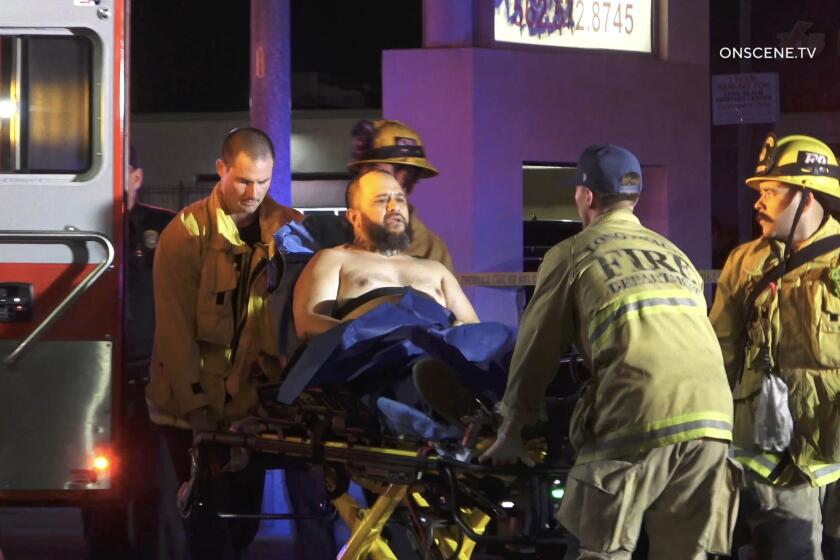Violante: Right Guy for the Job?
At first glance the appointment of William C. Violante as one of Richard Riordan’s five deputy mayors would appear to be odd. Then again, maybe it’s just politics.
The position for which the president of the Police Protective League has been tapped is described as involving liaison with the Police, Fire and Parks departments. Remember that the union strongly backed Riordan’s candidacy, even after revelations that one of his old drinking arrests involved interfering with an officer. Under Violante’s leadership, the union initially opposed the crucial police reform ballot measure overwhelmingly approved by voters last year and campaigned this year against the special police tax to hire 1,000 more officers, which only narrowly failed to get the required two-thirds vote. Worse yet, Violante has seemingly gone out of his way to knock Chief Willie L. Williams, accusing him in an open letter of only talking “a good game with the public.”
Those were unfortunate positions and unfortunate language. Los Angeles’ sweeping police reforms--engineered by now-Secretary of State Warren Christopher--were a striking civic accomplishment. They constituted a highly intelligent effort to modernize and open up an increasingly insulated and worrisomely alienated Police Department. And while people of goodwill can differ over any proposed tax, the idea of a police union so actively campaigning against a measure that would raise more money for the LAPD to hire more officers struck many people as unseemly, at best.
Concerning Violante’s attacks on Williams, the chief has never claimed to walk on water or have his own solution to Fermat’s Last Theorem. But to accuse this accomplished and respected police professional of only talking a good game is a cheap shot.
The new mayor himself must have been aware of the incongruity of the Violante appointment, because he telephoned Williams personally Wednesday to break the news. Riordan described the reaction of Williams, who has said nothing publicly himself, as “he thinks it’s a great idea because you can’t have good reform unless you include the rank and file.”
That in fact is the best argument for Violante. If Riordan’s goal is to get the rank and file behind the reform effort, then including Violante might be defended as a clever way of getting the opposition on the team. But can that work in practice? Or was the appointment merely a payoff for the union’s fervent backing? Worse yet, is it a declaration of intent to slow down, if not undermine, the reform movement? The issue should be clarified greatly when Riordan reveals his five choices for the Police Commission, reform-minded now--as it should stay.
More to Read
Start your day right
Sign up for Essential California for news, features and recommendations from the L.A. Times and beyond in your inbox six days a week.
You may occasionally receive promotional content from the Los Angeles Times.






